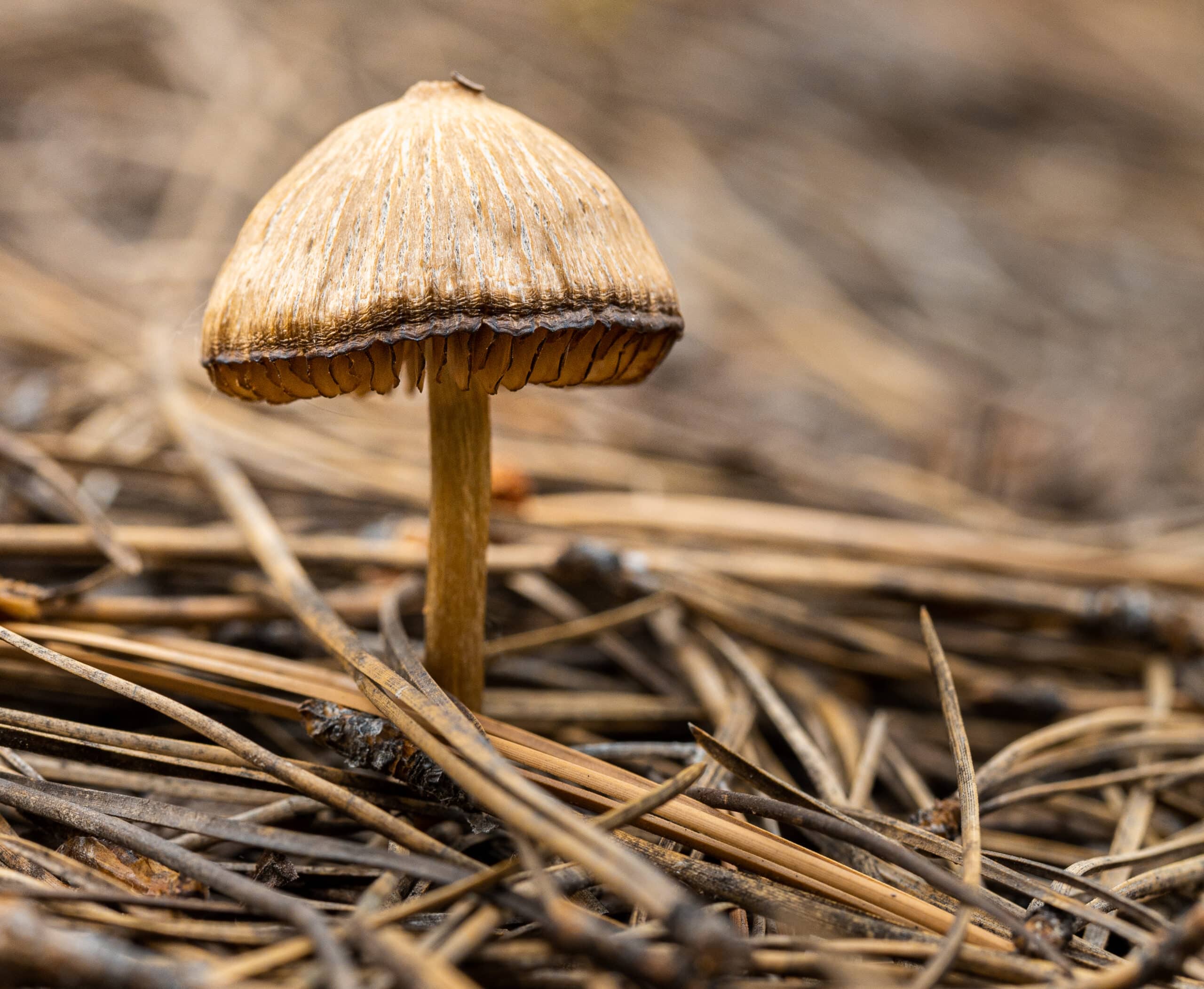Colorado Voters Legalize Psychedelic Mushrooms
by Haley Mills · November 12, 2022
In a landmark decision, Colorado voters have legalized the use of psychedelic mushrooms. This exciting development could pave the way for other states to follow suit.

On Tuesday, Colorado voters approved a ballot measure to legalize the possession of specific psychedelics and establish psilocybin treatment centers.
The History of Drug Reform in Colorado
Over four years after Denver became the first city to decriminalize mushrooms, starting a national psychedelic reform movement, Colorado has legalized personal use possession of a variety of psychedelic drugs while following Oregon’s path in authorizing licensed facilities to administer supervised psilocybin. This move comes approximately ten years after Colorado legalized recreational marijuana for adult use and sale. The ballot measure, Proposition 122, received fifty-one percent of voters’ approval.
The Controlled Substances Act of 1970 deemed Psychedelic mushrooms unlawful in the U.S. Even with the passage of Proposition 122, psilocybin is federally classified as a Schedule 1 controlled substance of which there is no medical use, similar to heroin. However, research has found that psychedelic mushrooms may have health benefits like depression, PTSD, and anxiety treatment. There are currently fifteen local U.S. jurisdictions that have decriminalized possession of psilocybin.
Proposition 122 Explained
While the Proposition doesn’t allow retail or commercial sales, it would be a significant success for the drug reform movement. Oregon and Colorado will now be the only states to legalize psychedelic treatments.
Due to the passage of Proposition 122 by Colorado voters, once licensed facilities open in fall 2023, licensed treatment facilitators can administer psilocybin. This service will be available to adults 21 years or older. Lawmakers will also decriminalize the personal possession of mushrooms at that time. Most people who have served their completed sentence for a conviction related to an offense made legal will be able to petition for record expungement.
Latest Research on Psychedelic Treatments
- A recent study published in the New England Journal of Medicine found that 25-milligram doses of psilocybin helped to significantly reduce depression symptoms.
- Another study from Johns Hopkins found that the anti-depressant effects of psilocybin therapy may be durable for up to a year following treatment.
- Psilocybin is thought to be able to help treatment-resistant depression or anxiety, specifically in patients with terminal illnesses.
- The FDA referred to psilocybin as a “breakthrough therapy” in 2019.
- Several clinical trials have tested psilocybin in combination with therapy. Unlike antidepressants, psilocybin has been shown to have long-lasting treatment effects after just one or a few doses.
- Some promising new research shows that psilocybin can potentially help treat substance use disorders, as well as nicotine and alcohol dependence.
Psychedelics and Meditation
Although there are thousands of meditation studies, there are only around twenty known studies of psychedelics. This is primarily because psychedelics are considered a controlled substance and remain illegal in the United States. Because of these limitations, there is little scientific knowledge about their effects on the conscious mind.
Combining psychedelic experiences and meditation can positively affect one’s emotional process by increasing one’s ability to contact the present moment directly and enhancing positive emotional experiences. Being present with our feelings includes reducing mind-wandering and bringing kindness and openness to negative emotions.
Meditation and psychedelics can take us beyond ourselves, helping us connect with our surroundings. Learning to quiet the self-obsessive thoughts from time to time can help expand our sense of self to include our environment. In doing so, we can remain independent while harmonizing with our surroundings.
What are the concerns?
There are growing concerns that opening psychedelic healing centers and advertising drugs across Colorado will normalize drug use among young people. Unfortunately, the worry is that more teens are using psilocybin without needing the medicinal benefits, although there is no proof this will be the case. There isn’t an opt-out provision for cities and counties that don’t want these facilities in their area.
Proposition 122 allows facilities to expand to three plant-based psychedelics by the year 2026. Those are ibogaine, from an iboga tree; mescaline, from cacti; and dimethyltryptamine, or DMT, a natural compound already found in the body.
Opponents are concerned that current research typically involves psychedelic mushrooms and not enough is known about the effects of mescaline, ibogaine, and dimethyltryptamine. Hopefully in the next few years leading up to 2026, that will change.
The Justice Department’s National Drug Intelligence Center mentions the following potential adverse effects of ingesting psilocybin:
- vomiting
- weakness
- loss of coordination
- delusions
- Psilocybin can trigger episodes of psychosis (with a family history)
- Psilocybin can worsen heart conditions (pre-existing condition)
It is important to note that there are no fixed doses or schedules for microdosing with psychedelics. The most important thing to do is listen to your body and find the dosage that works best for you. Some patients prefer to take their dose every day, while others may only do it once per week. In order to avoid any unwanted side effects from the substance, it is best not to mix substances or use them with alcohol or other drugs. This will reduce the chances of an overdose and unpleasant experiences like paranoia and psychosis.
How much was spent on this ballot initiative?
The supporting committee of Proposition 122 spent around 4.5 million USD, with almost all of the funds coming from Washington D.C.–based activist groups such as New Approach PAC and Center for Voter Information. The Denver Post reported that the TOMS shoe company founder donated one million dollars to New Approach to support marijuana and psilocybin legalization initiatives in multiple states.
Deadlines: Proposition 122 states that Colorado must issue drug testing standards, license requirements, and health/safety protocols by January 1, 2024. Governor Polis has until January 31 to appoint fifteen National Medicine Advisory Board members. Then, the state of Colorado must begin accepting applications for licensed administering facilities by September 30, 2024, and access to psilocybin will become available later that year. Finally, by June 2026, the state Department of Regulatory Agencies may expand access to three other plant-based psychedelics.
Final Thoughts
The notion of both red and blue states taking a look at the possible therapeutic benefits of psychedelic drug therapy is nothing new in the scientific world. Similar measures have been introduced in states like Virginia, Kansas, Missouri, California, Michigan, Washington State, Vermont, New Hampshire, Connecticut, Texas, and Oregon. The news, while obviously encouraging, sadly speaks to an ever-growing epidemic of deteriorating mental health nationwide, all while we continue to navigate the aftermath of the global COVID-19 pandemic.
The workings and mysteries of powerful, mind-altering psychedelics are better to be understood than feared. In Colorado and places like it, scientists and policymakers within the state government are attempting to put patients first and we are here for it.
Last Updated: August 8, 2024
Get Approved for Your Medical Marijuana Card in Minutes!

Get Your Medical Card
Connect with a licensed physician online in minutes

Like This Article?
Share with your friends
Table of Contents
Keep Reading
-
How Do I Get a Medical Marijuanas Card in MD?
A step-by-step guide on how to get a medical marijuana card in Maryland. Learn about the requirements, benefits, and how to get started today.
-
How to Get a Medical Marijuana Card in WA at 18: A Step-by-Step Guide
Learn how to get a medical marijuana card in WA at 18 with this step-by-step guide.
-
Get Your Medical Marijuana License Near Me: A Step-by-Step Guide
Easily navigate the process to obtain your medical marijuana license near me with our step-by-step guide.



